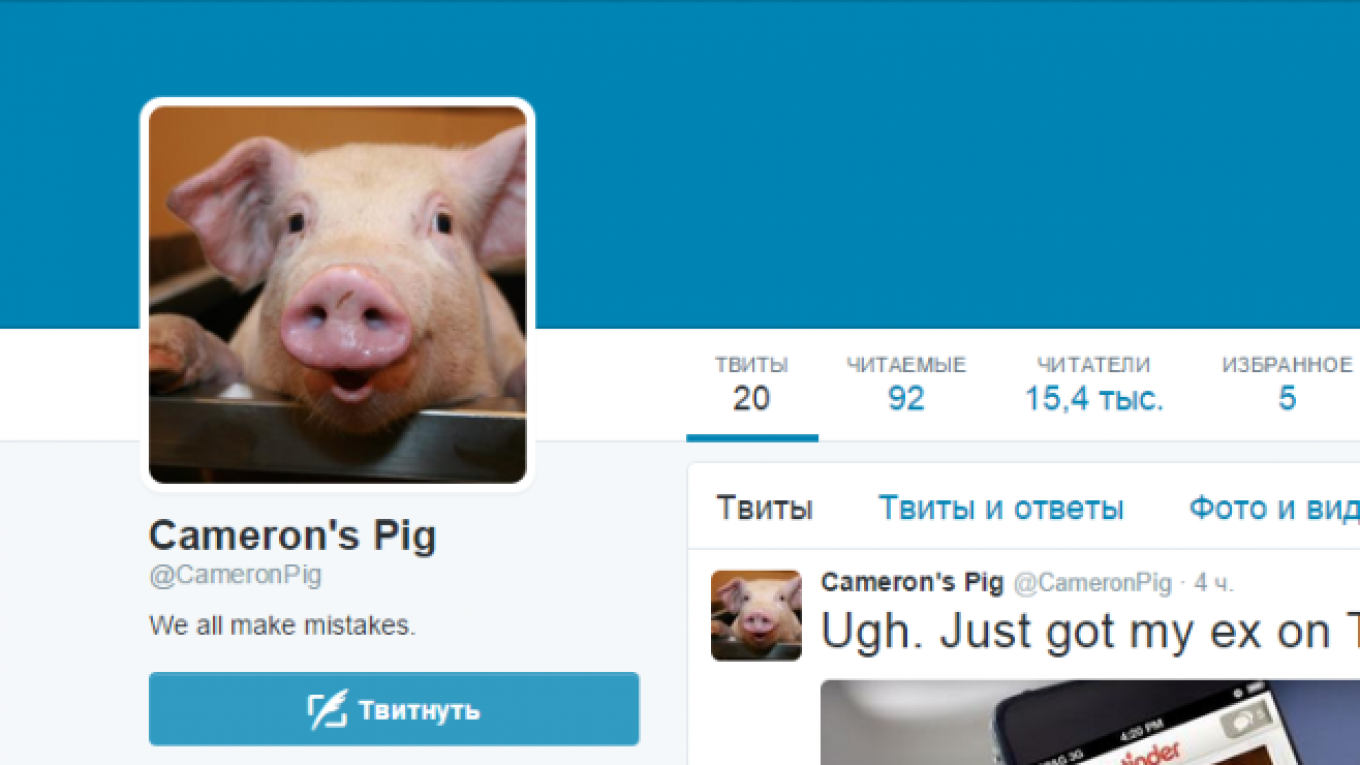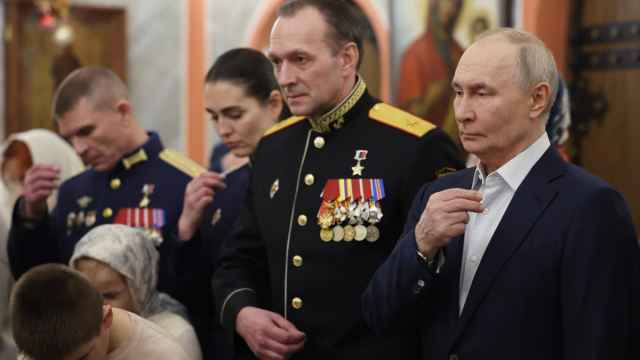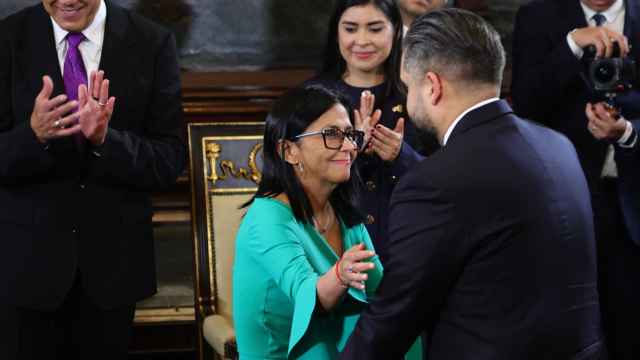Russian media were quick to jump on claims that British Prime Minister David Cameron had performed an obscene act with a dead pig as a student in order to mock the U.K. leader.
The scandal — unofficially dubbed “Pig-Gate” — erupted this week following the publication of extracts of an unauthorized Cameron biography in which the future prime minister was reported to have put “a private part of his anatomy” in a dead pig's mouth during his student years.
An English-language article published Monday by state-funded television network RT was titled “#PigGate farce: Story of Cameron's 'private part' in dead pig's mouth resonates gloriously online.”
News website PolitNavigator.net titled a story “British Prime Minister David Cameron was a coke head and had sex with a dead pig in his youth,” which topped Russian Google News search rankings on the leader.
And an NTV television channel correspondent reported from London's Downing Street on Monday: “If [Cameron] starts talking about an increase in funding for agriculture he will be mocked, and he'll never again be able to fry bacon for breakfast with a clean conscience.”
In a final act of mockery, the Russian Embassy in London was outed by BBC journalist Daniel Sandford on Monday as having started following a spoof Twitter account mocking the leader.
“Important news: @CameronPig is being followed by @RussianEmbassy. Just thought you'd want to know,” Sandford tweeted, to which the Russian Embassy replied: “Twitter account is followed, not the pig. Please rectify.”
The unauthorized biography "Call Me Dave" was written by journalist Isabel Oakeshott and former Conservative Party Treasurer Michael Ashcroft, who donated millions to the party before falling out with Cameron, The Associated Press wrote Monday.
A Message from The Moscow Times:
Dear readers,
We are facing unprecedented challenges. Russia's Prosecutor General's Office has designated The Moscow Times as an "undesirable" organization, criminalizing our work and putting our staff at risk of prosecution. This follows our earlier unjust labeling as a "foreign agent."
These actions are direct attempts to silence independent journalism in Russia. The authorities claim our work "discredits the decisions of the Russian leadership." We see things differently: we strive to provide accurate, unbiased reporting on Russia.
We, the journalists of The Moscow Times, refuse to be silenced. But to continue our work, we need your help.
Your support, no matter how small, makes a world of difference. If you can, please support us monthly starting from just $2. It's quick to set up, and every contribution makes a significant impact.
By supporting The Moscow Times, you're defending open, independent journalism in the face of repression. Thank you for standing with us.
Remind me later.






